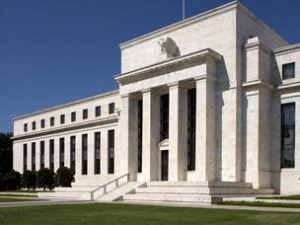What Goes Up, Must Come Down…
As we move into the final quarter of 2017 geopolitical tensions dominate news-flow. The world was just about getting accustomed to US presidential policy being communicated by social media but now we also have the prospect of a recently-weakened UK government entering divorce negotiations with the EU, North Korea ‘flexing its muscles’, Qatar being ‘cold-shouldered’ by its Arab neighbours on accusations of sponsoring extremist militant groups and, most recently, the fragility of the Eurozone again being highlighted by the Catalan independence unrest. Against such a backdrop it would not be unreasonable to expect global stockmarkets to come under pressure, however, the reality has been quite the opposite. Indeed, at the time of writing, the US stockmarket has made further record highs.
It is now ten years since the global financial crisis began. What were supposed to be emergency measures introduced by central banks to rescue the global economy (QE, ultra-low interest rates, help to buy etc.) have in fact become mainstream economic policy. This cheap money has served to fuel a rapid appreciation in assets as investors chased yield. Shares, bonds, commercial property and house prices have all soared in value. Great news if you are lucky enough to own such things but not so great if you don’t; hence the populist election results that we have witnessed in recent months as the ‘have nots’ register their dissatisfaction. Cheap money has also enabled companies to borrow money and buy back their own stock, artificially boosting their reported earnings per share which, of course, is always useful for triggering those executive share option incentive schemes!
There are signs that the mood is changing. The unintended consequences of economic policy are being recognized by the political elite who now feel their positions threatened. Wealth redistribution is likely to be a feature of future government policy (whatever the colour) and we can also expect to see big corporates footing some of that bill, with further increases in the minimum wage likely and a global clampdown on those well-known Tech giants that seem to have an aversion to paying tax. ‘Normalisation’ of interest rates will take much longer, given the still staggering levels of personal debt, but certainly a tapering and eventual withdrawal of QE measures will be the starting point. House prices will likely fall (and indeed have already begun to do so in London), with the recent decline in new car registrations also an early warning sign that demand for credit is waning and that consumer spending is being impacted by sticky inflation.
In summary, so far as the investment markets are concerned, our view is that share prices are vulnerable to a correction given generally elevated valuations, sluggish earnings growth and an extremely uncertain geopolitical backdrop. The last decade of ultra-loose monetary policy has sucked huge amounts of money into investment assets, much of it via low cost tracker funds, which could have significant ramifications should there be a rush for the exits at some point in the future. Now would seem a sensible time to review your portfolio and ensure that it is positioned for potentially more difficult conditions ahead.
Should you wish to discuss any of the above commentary in further detail, or would like to discuss your investment strategy in general, then please contact our investment management team on 01604 621421.
The value of an investment and the income from it could go down as well as up. You may not get back what you invest. This communication is for general information only and is not intended to be individual advice. Cave & Sons Ltd is authorised and regulated by the Financial Conduct Authority. Financial Services Register number 143715.

